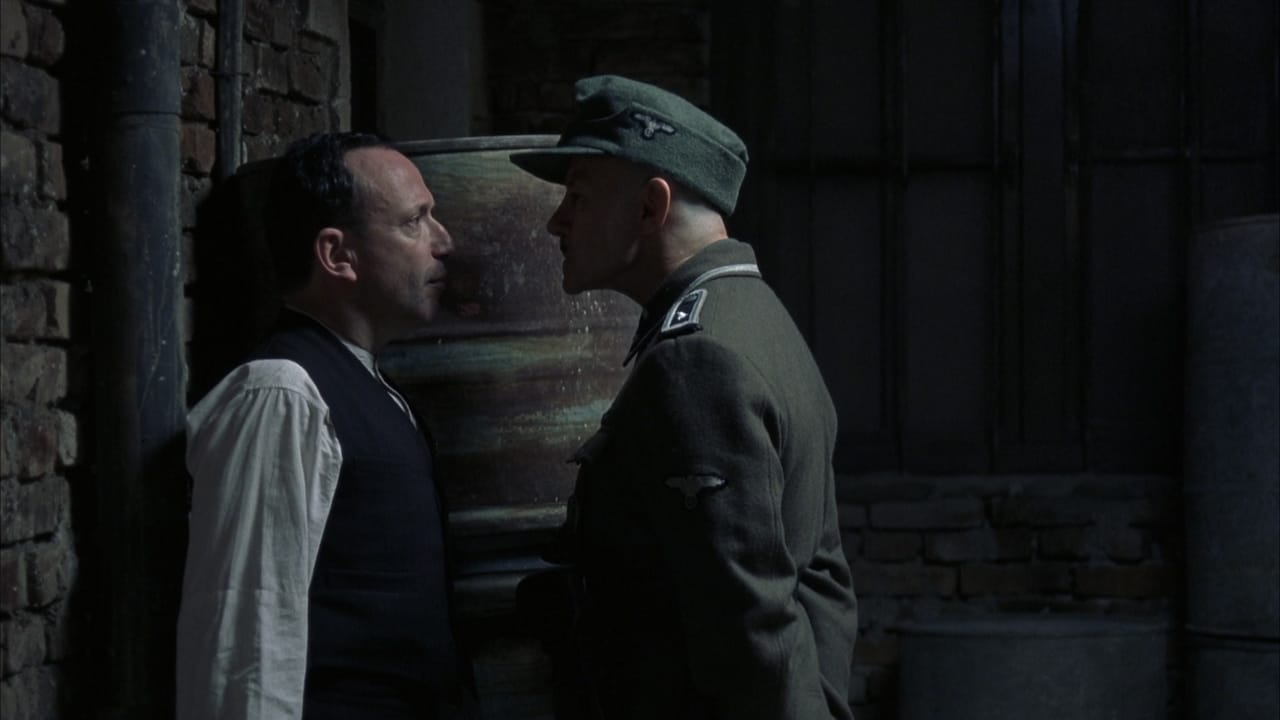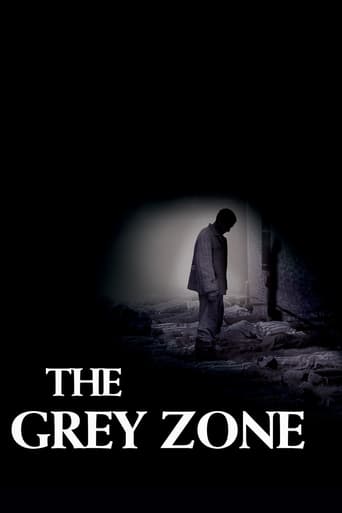Phonearl
Good start, but then it gets ruined
ChanFamous
I wanted to like it more than I actually did... But much of the humor totally escaped me and I walked out only mildly impressed.
Tayloriona
Although I seem to have had higher expectations than I thought, the movie is super entertaining.
Rio Hayward
All of these films share one commonality, that being a kind of emotional center that humanizes a cast of monsters.
kaiser100
I had a hard time getting to sleep after watching The Grey Zone. It is the darkest film I have ever seen. It is a stark contrast to Schindler's List in the fact that it is focused on the experience of the great majority of the people who were sent to the death camps and died. Nobody helped them. It is also raw in its presentation of the gas chambers, crematoria and the Sonderkommandos, Jews who volunteered to do the dirty work of processing the people who arrived at the camps and then their dead bodies afterwards in exchange for a few more months of life.That takes nothing away from the extraordinary Schindler's List, as it is very important to show the deeds of people like Oskar Schindler. His story and the story of many others like him is also true. In my opinion watching both films makes for an effective portrayal of the Holocaust on film, and an exploration of the nature of evil and humanity.Although the Grey Zone is a bleak story of utter human depravity, the darkness is not total. In an extraordinary turn of events that actually happened in October 1944, the very people who at first abandoned their morality to keep themselves alive threw the Nazis' deal back in their faces and sacrificed themselves, taking a part of the Auschwitz death factory with them. Their actions suggest that even though it flickers, the eternal flame that makes us greater than what we may appear to be is always present within.
Hitchcoc
If his is indeed an accurate portrayal of a group of Jews who survived a few extra weeks by doing the bidding of the Nazi pigs who run the extermination camps, God help us! This is one of the bleakest things I have ever seen. We, of course, have to ask the simple question, "What is life worth?" If the answer is everything, then we can understand why these poor souls did what they did. In every portrayal of these camps, we see how powerless the inmates are. They are face daily with pistols and machine guns. They are arbitrarily shot in the head for crying, or just standing in the wrong place. They are the victims. What about the Germans? How can a human being do this to another and take pleasure in it? I know how naive that question is, but it is certainly at the central core of everything. The closing scene is so hopeless and so gripping. There are almost surrealistic moments, almost like those in silent films where a face is made to stand for a thousand words. I doubt I could watch this again. I also don't know that there is another holocaust film that can affect one any more than this.
jzappa
The Grey Zone furnishes soul and significance for an episode that's little more than a postscript in history books, the story of the Jewish work units in the Auschwitz concentration camp. These prisoners were made to assist the camp's guards in shepherding their victims to the gas chambers, then disposing of their bodies in the ovens. Nelson attempts to utilize the past to remind us of the fragile vagueness of our own principles, that most of us will never have to know what we might have the capacity for in particular conditions.And yet Nelson's dialogue is like a horse race. It sounds like American slang and divulges its theatrical roots, which works against the potent acting and the intrinsic impact of the subject matter. His screenplay needs to show more of the catch-22, instead of have his characters put on hostile debates about it. No doubt there is much tension created through all the tug of war, but characters are too graceful and fluent while speaking under pressure and in conflict. I don't feel anyone's true nature comes through in their words, except perhaps Harvey Keitel's surprisingly becoming SS officer. You can virtually hear the components of his principled device stirring as characters rap their adages and aphorisms. There's an affected purpleness to everything. Sometimes it works and sometimes shrieks of pretension. Nelson takes an emotionally inconceivable situation and comes close to sterilizing it with self-conscious technique. But ultimately, these are defects that, ironically, make fodder for subsequent discourse.Nelson, an actor himself, knows experientially how to stimulate and inspire his cast, which is comprised of other strong performances than just Keitel's. Needless to say he must also know how to make an actor seem not to act, how to put him or her at their ease, bring them to that state of relaxation where their creative faculties are released. I think for every time that's done successfully here, there are just as many instances where we see through the baroque artifice.Whether its sense of style seems to trivialize the authenticity of its situations, that's not to say it aims for the heart and misses. There are nevertheless many extraordinarily bleak and, most significantly, unflinchingly emotional scenes and moments that it's out of the question that you'd not be moved by the film. The violent rebellion, played not for hero worship but with somber fatalism, using minor key tonality in its score. If this story must be told and retold, and to be sure it must, then The Grey Zone is to be praised for discovering a new approach. The film's feeling for images gives it a grave intensity, but it's thrust by the acting, self-conscious or not. And not like many mainstream Holocaust films, even great, monumental ones, The Grey Zone is actually frank enough to renounce the prospect of hopefulness in Auschwitz. Or the world.The film sneers at how we, most of us, more than we'd like to know, feel we can generalize about groups of people, races, nations, ethnic and religious groups, how in the bleakest of examples of this shameful human weakness gone to the extreme, it is all self-fulfilling prophecy. When you take away the rights of people, when you dehumanize them, they will of course work as corruptly and extremely as you to survive your oppression. One day sit down and make a list of groups of people in any or all countries, not least of which ours, that can be equated to this, and you may see a less distilled, less explicit holocaust that may or may not end.
Darrin
This film would have been far more convincing, had the entire cast not spoken with American accents. This is absurdity at its finest. Far and few Europeans at the time spoke fluent English, let alone perfected the American accent! LOL! Arquette (mother was Jewish - and the daughter of a Holocaust refugee from Poland) was miscast. Harvey Keitel (b. Bklyn, umpteenth sweet, Jewish NYer) gave the only convincing performance, since he had no choice but to speak in German tongue. Sorvino, Buscemi, and Natasha Lyonne (b. Braunstein, umpteenth sweet, Jewish NYer) were hardly in the film. While far from slow-moving, "The Grey Zone" was definitely no "Schindler's List" or "Europa, Europa."

